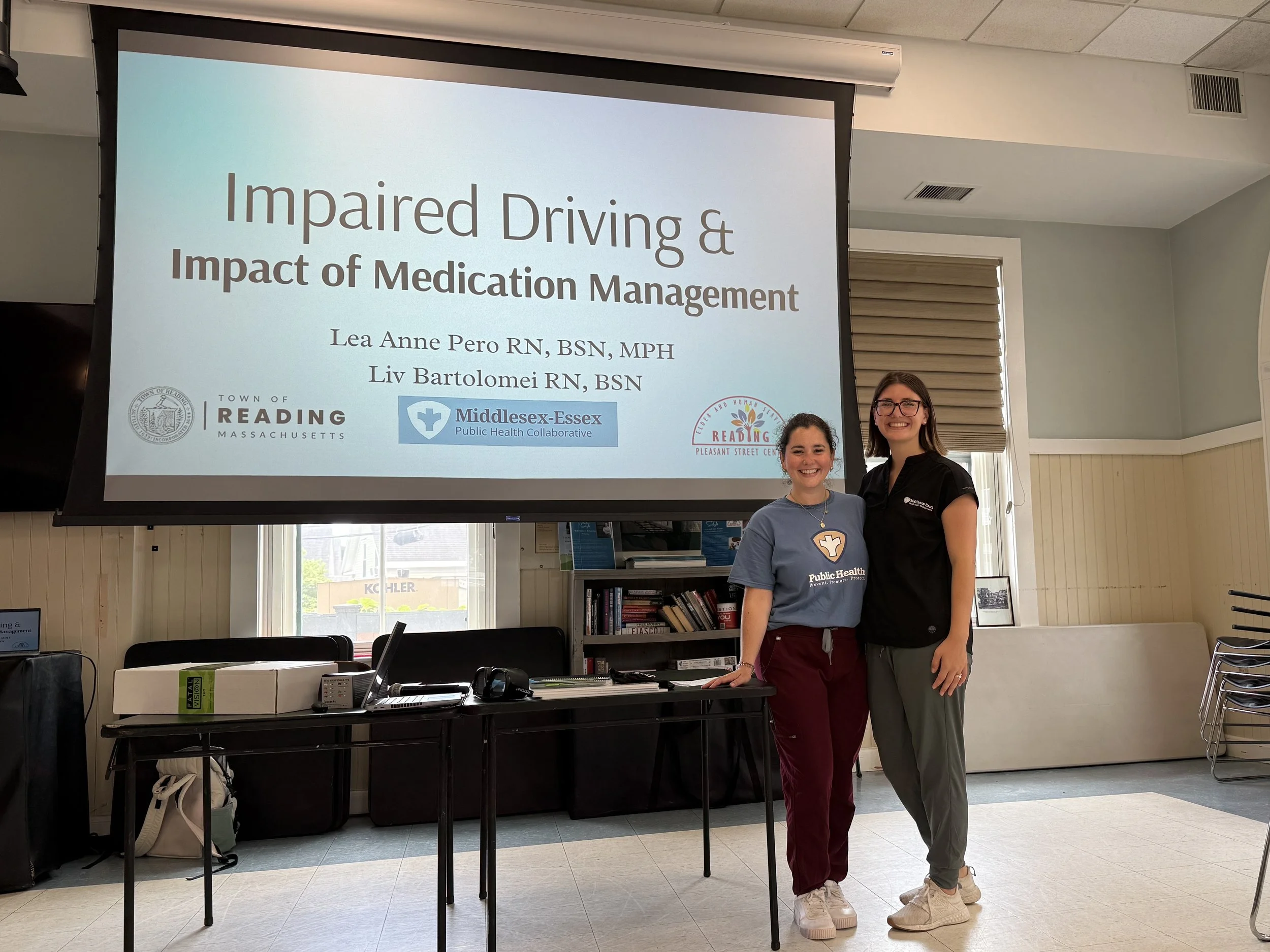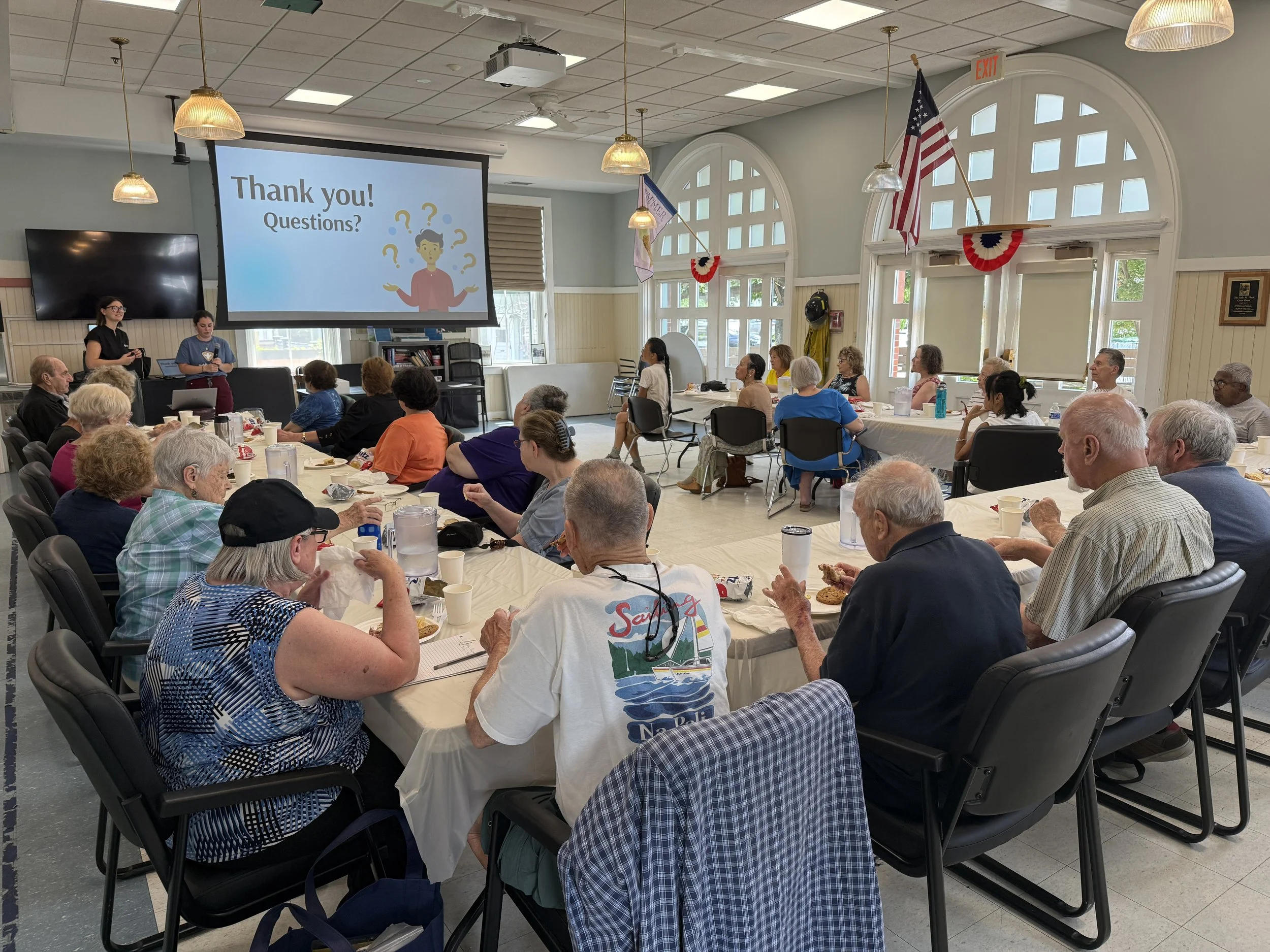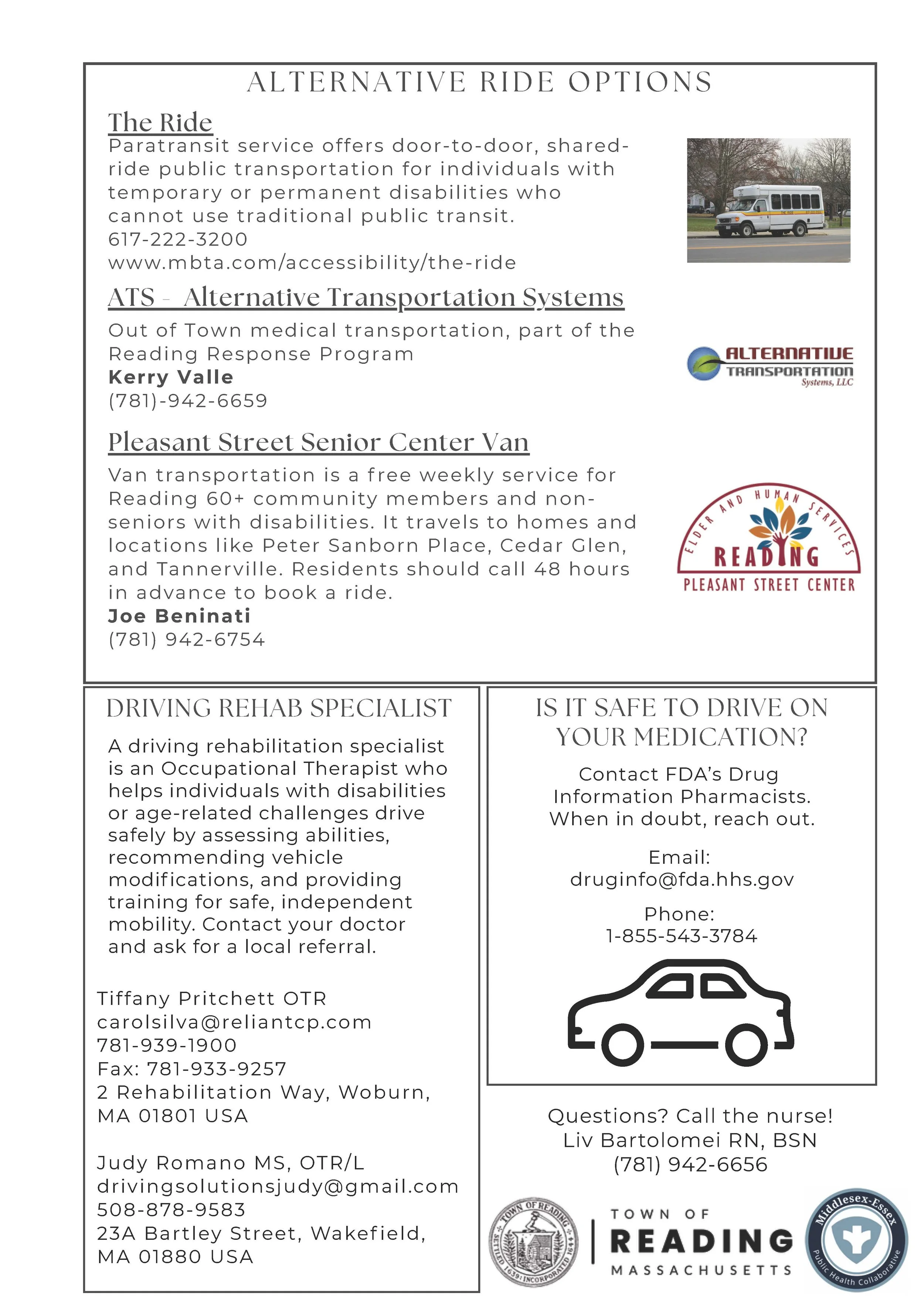Medication and driving: understanding the risks and staying safe
Impaired Driving & Impact of Medication Management presentation by Lea Anne Pero RN, BSN, MPH from Middlesex-Essex Public Health Collaborative and Liv Bartolomei RN, BSN, Reading’s Public Health Nurse. Photo provided by Lea Anne Pero.
(4-5 minute read)
The Town of Reading hosted a Lunch & Learn presentation on Thursday, July 17, focused on the crucial but often overlooked issue: the risks associated with driving while taking medications. The presentation opened with a short video titled “DWI: Driving and Medications” on the Texas A&M Transportation Institute, and the session aimed to educate residents that certain prescriptions, over-the-counter medications, and supplements can impair driving ability and increase accident risk.
Short video played during the Lunch & Learn presentation.
Understanding the risk factors
Many people don’t realize the significant impact their medications, especially when combined, can have on their ability to drive safely. Common risk factors include:
Polypharmacy (taking multiple medications)
Chronic health conditions
Lack of regular medication review with a healthcare provider
Impaired Driving and Medications Lunch & Learn at the Pleasant Street Center on July 17, 2025. Photo by Taylor Gregory.
These risks are particularly relevant for older adults, many of whom take multiple medications and may not experience side effects until a driving situation tests their coordination, attention, and reaction time.
One participant shared a story of a friend who was in an accident as a result of her medications. They shared their dismay at their friend having lost their license as a result, but reinforced that it was necessary to protect others on the road.
Strategies for safe medication management
Experts shared several steps individuals and caregivers can take to help reduce driving-related risks:
Schedule regular check-ins with your healthcare provider
Request a thorough medication review, including supplements
Simplify medication routines whenever possible
Local pharmacies, like those at CVS, also offer medication consultations. Don’t hesitate to ask questions when picking up prescriptions.
Healthcare providers play a vital role
Healthcare professionals help ensure safety by:
Monitoring side effects
Adjusting prescriptions
Educating patients about interactions
Reviewing all medications - including supplements - regularly
The role of family and caregivers
Family support is essential. Caregivers can:
Watch for changes in behavior or alertness after new medications
Encourage at least one annual provider visit
Help manage medication schedules and reminders
Offer transportation if driving isn’t safe
Transportation resources in Reading
If driving becomes a concern, several local options are available:
The RIDE (MBTA Paratransit Service): for residents with disabilities; door-to-door service
MBTA The RIDE | 617-222-3200
Pleasant Street Senior Center Van: weekly transportation for residents 60+ or with disabilities
Joe Beninati: 781-942-6754
Out-of-Town Medical Transport (Reading Response Program): some income restrictions apply
Kerry Valle: 781-942-6659
Uber Flex via the RIDE: pre-paid 10-ride passes for $3 per ride
Driving rehabilitation specialists
A driving rehab specialist is an occupational therapist trained to assess driving ability and recommend tools or training to support safe driving. Local specialists include:
Tiffany Pritchett, OTR
CarolSilva@ReliantCP.com | 781-939-1900
2 Rehabilitation Way, Woburn, MA
Judy Ramos, MS, OTR/L
DrivingSolutionsJudy@gmail.com | 508-878-9583
23A Bartley Street, Wakefield, MA
Interactive learning: drunk goggles simulation
After the presentation, participants engaged in a hands-on activity using drunk goggles to simulate impaired driving. Tasks included:
Walking a straight line
Tossing balls into a bin while seated
The “walk the line” exercise proved to be especially challenging. One participant remarked,
“That’s crazy - I thought the line was over here, but it was over there!”




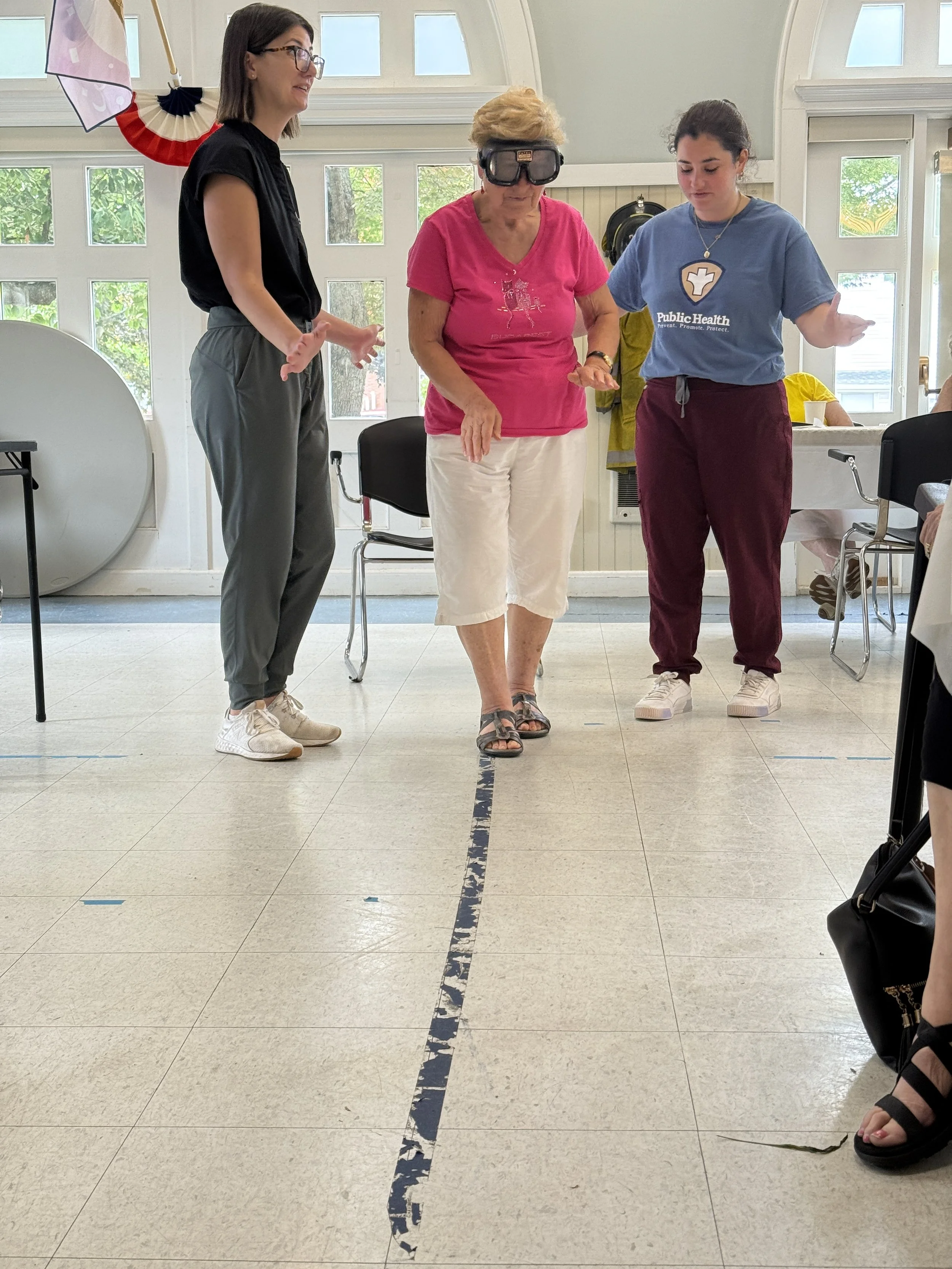
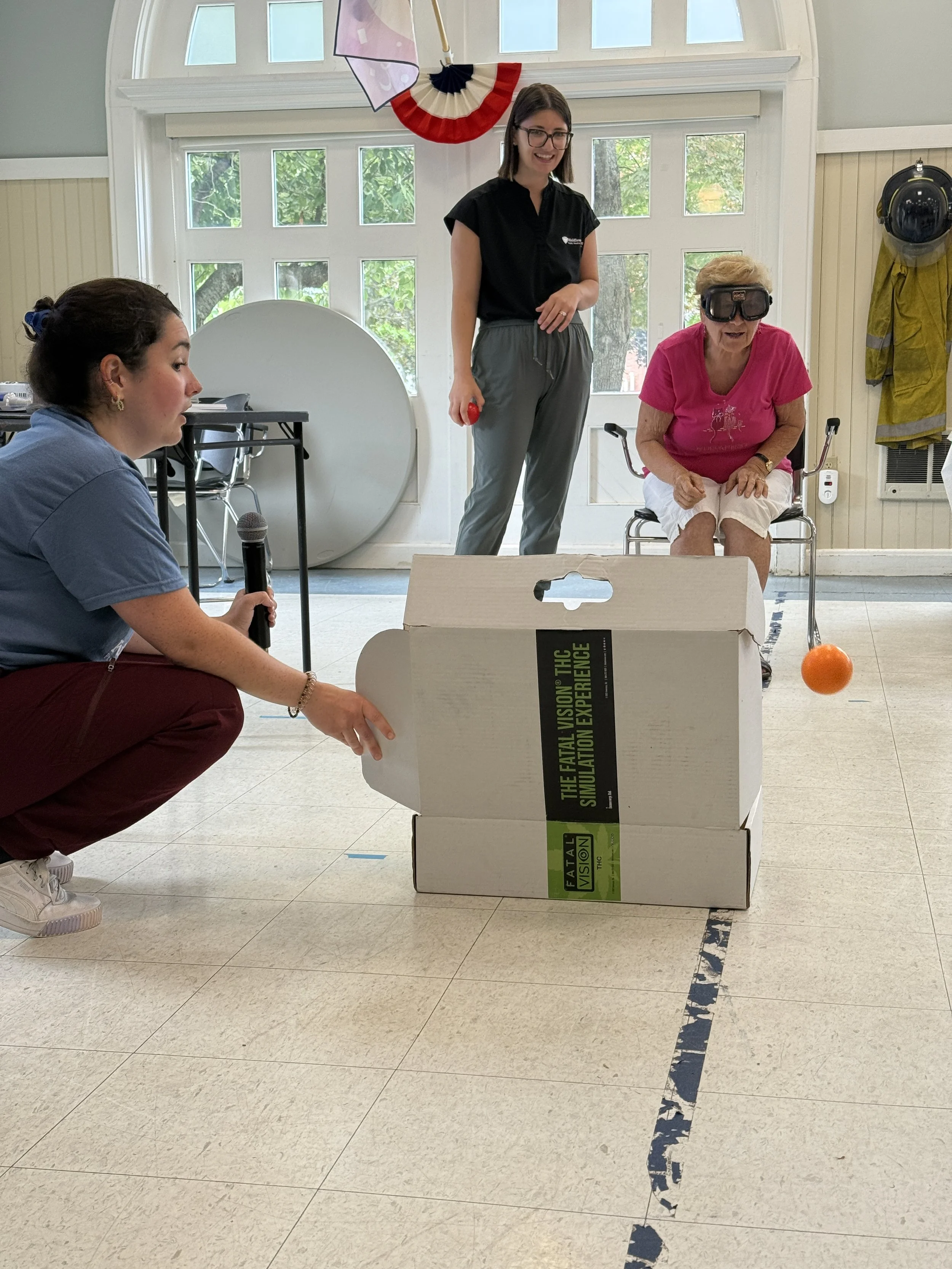
Need help understanding your medications?
Contact the FDA Drug Info Pharmacists with questions about your medications:
DrugInfo@FDA.HHS.gov | 1-855-543-3784
Or call Reading nurse Liv Bartolomei, RN, BSN, at 781-942-6656.
Let’s work together to stay informed, drive safely, and support one another in making smart decisions about health and mobility.
Local transportation resource sheet provided by Lea Anne Pero, MPH, BSN, RN, with the Middlesex-Essex Public Health Collaborative.
